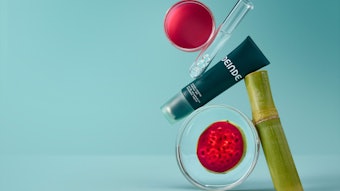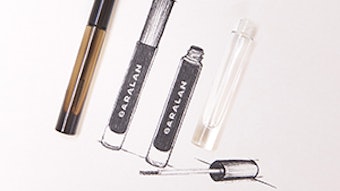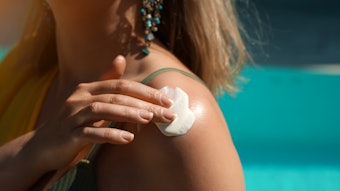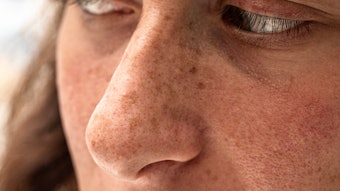
On June 3, 2025, U.S. consumers were given new hope for better sun protection. Legislation was introduced to streamline the U.S. Food and Drug Administration's (FDA's) review process of the effectiveness and safety of new ingredients for nonprescription sunscreens.
The Supporting Accessible, Flexible and Effective (SAFE) Sunscreen Standards Act (H.R. 3686) was presented by co-chairs of the Congressional Skin Cancer Caucus, Representatives John Joyce, M.D. (R-PA), Debbie Dingell (D-MI), Dave Joyce (R-OH) and Deborah Ross (D-NC).
'Fast-tracking' New Sunscreen Approvals
“As skin cancer rates continue to rise across the country, it’s unacceptable that sunscreen innovation has remained virtually stagnant,” said Joyce. “As a melanoma survivor, I understand the importance of quality sunscreen and am proud to introduce this legislation to fast-track the review and implementation of new sunscreen products."
He added it is "high time" (almost 25 years) for the FDA to start a new chapter in skin health and embrace new advancements that will expand access to the latest, most advanced sunscreens for all Americans.
“As a physician legislator and a board-certified dermatologist, I have seen firsthand the benefits of sunscreens to help prevent melanoma and other skin cancers," added Joyce. “It is very disappointing that the FDA has ignored Congressional intent and continues to stall the approval of new sunscreen ingredients despite legislation to streamline this process.
"Through the introduction of the bipartisan SAFE Sunscreen Standards Act, we can ensure that the FDA quickly approves new sunscreen ingredients, giving the American public access to the best skin protection available.”
3 Key Elements the Act Addresses
As Joyce explained in a press announcement, the SAFE Sunscreen Act focuses on three key elements.
1. Improving Regulatory Standards
- The act directs the FDA to establish clearer, more flexible standards for evaluating sunscreen ingredients.
- It allows for the use of real-world evidence, observational studies and nontraditional scientific data (beyond standard clinical trials) to determine safety and effectiveness.
- It also incorporates non-animal testing alternatives to align with modern research practices and ethical standards.
2. Finalizing Administrative Order on Pending Sunscreens
The act requires the FDA to update its final administrative order on pending sunscreen ingredients to:
- Consider historical data on ingredients already used safely in the U.S.;
- Reinforce that sunscreen is a proven cancer prevention tool; and
- Use the new evidence and testing standards established in the bill.
3. Increasing Transparency and Reporting
Finally, the act requires the Secretary of Health and Human Services to submit annual reports to Congress detailing the following. These reports must also be publicly posted on the FDA’s website within seven days.
- Progress on implementing new standards,
- How many applications were reviewed under the new process, and
- The FDA’s use of non-animal testing methods.
Bemotrizinol Glimmers with Hope
As previously reported, DSM-Firmenich has formally sought FDA approval for its Parsol Shield (INCI: Bemotrizinol) sunscreen active for use in over-the-counter (OTC) sunscreen products.
In 2024, the company submitted the "first-ever" Over-the-Counter Monograph Order Request (OMOR) Tier 1 application to the FDA in hopes of earning the company's sunscreen active a generally recognized as safe and effective (GRASE) designation. This would mean inclusion in the U.S. over-the-counter (OTC) Sunscreen Monograph and the first new sunscreen added in nearly 25 years.
Carl D’Ruiz, senior business development manager for beauty and care, North America, at DSM-Firmenich, has been advocating for the ingredient's inclusion on the monograph for years. He expressed his excitement at the new act's proposal on social media.
"Exciting news for sun safety!" he wrote, at the time of the announcement. "The House Skin Cancer Caucus... introduced bipartisan legislation... : H.R. 3686, the SAFE Sunscreen Act. This pivotal bill aims to improve regulatory standards for sunscreen in the U.S. by directing the FDA to establish clearer and more flexible guidelines for evaluating sunscreen ingredients."
In a more recent post, he gave brief status update on the company's ingredient progress.
"Not even the relentless rain could dampen our DSM-Firmenich team's spirits during our FDA meeting yesterday!" he celebrated. "We continue to collaborate with the FDA, presenting the latest safety and efficacy data for Parsol Shield (Bemotrizinol) under their stringent guidelines.
"Our discussions have brought us closer to including Parsol Shield as the first new sunscreen active ingredient on the FDA’s OTC sunscreen drug monograph in over 25 years."
He added that the company is on track to deliver this innovation to the market in 2026, "paving the way for a brighter, healthier future by preventing skin cancer."










